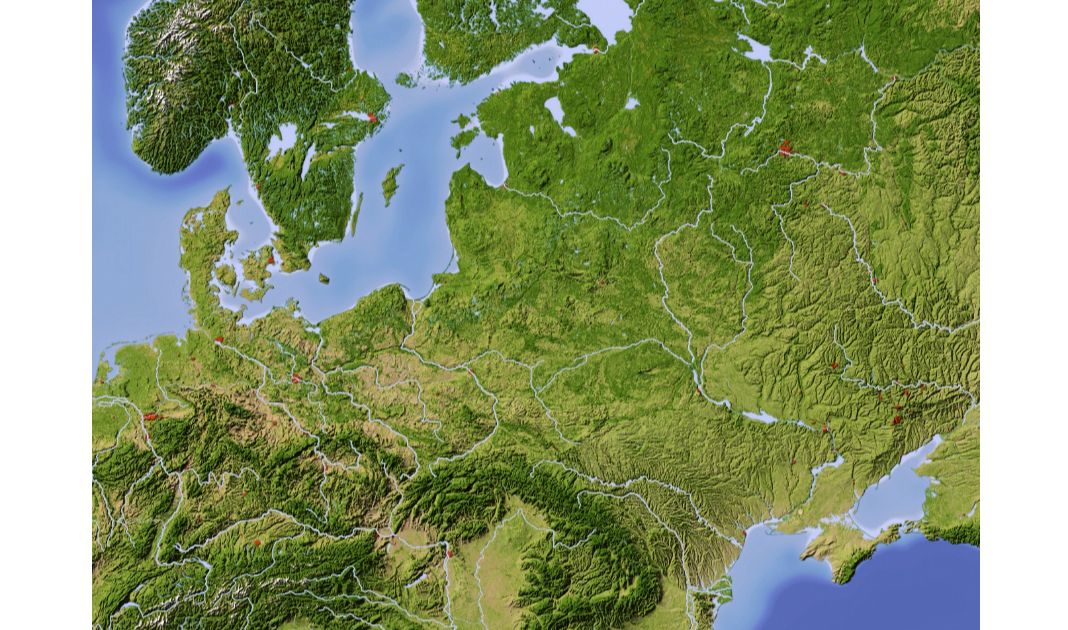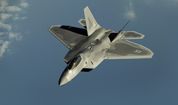Intermarium Weekly 01-07.02.2020

Minsk ponders whether and how to play the ‘Pompeo Card’
US Secretary of State Mike Pompeo visited Minsk in person last week to tell Belarus that Washington can provide it with “all the oil it needs”. US strategic aims here are threefold: deliver a strong message to its Eastern European allies that they are in control of the situation and are ready to intervene in order to deter Russian expansion in the region; observe the situation from within to assess the readiness-level in Minsk to stand up to Moscow; and, in purely trading terms, to find out how prepared Minsk are to take up America’s offer of oil and other assistance.
It’s worth noting that this is not the first time Belarus has tried ‘blackmailing’ Moscow with the prospect of alternative energy sources. A similar situation arose between 2010 and 2012 but this time the engagement of the West is incomparably greater than before. Belarusian experts have argued that Minsk now has a minimum of one month to accomplish its aim in building a diversified system of oil supplies and reap of the full benefits of the ‘Pompeo Card’.
Belarus remains a member of the Union State (the Russian-Belarusian Commonwealth established in 1996), the Eurasian Economic Union (founded in 2015) and the Collective Security Treaty Organisation (founded back in 1992). There is no getting away from the fact that – militarily, at least – Minsk still sings the baritone to Moscow’s bass.
But we also need to bear in mind America’s strategic aim to become the world’s leading seller of oil and gas by 2050 and the Trump Administration’s go-ahead focus on improving relations with traditionally ‘difficult’ countries, vis-a-vis North Korea. This is how the approach has been packaged for internal consumption in the US. In fact, Washington would like to embrace Minsk further and more concretely but there are three interlocking factors likely preventing such a push (and in some ways making it a very costly geopolitical endeavour):
1) American sanctions that are deeply connected with human rights in the country – Lukashenko is not ready for such dramatic changes. There is a high probability that in the case of political liberalisation, his regime would be smashed by pro-Western forces.
2) If Minsk does end up buying American oil via intermediaries (for example Poland or Lithuania), it is likely to be 20-25% more expensive than buying from Russia (or perhaps Ukraine). Would a business-minded Trump Administration be willing to lower its price to secure some geostrategic benefits?
3) There is still the short-term (perhaps medium-term) infrastructure problem that Belarusian refineries are mainly designed for processing Russian Urals oil. Even if Belarus managed to secure an alternative oil source, it would have to be diluted with Russian oil. In other words, Moscow would still have some leverage over Minsk. Note the calmness with which Putin’s press secretary Dmitry Peskov responded to the situation by saying that “every country has a right to decide according to its national interest and find alternative sources of energy”. It’s as if the Russians are simply waiting for Belarus to realise the inevitability of the current state of affairs.
The results of the meeting between Lukashenko and Putin in Sochi now indicate that they are going to close the current confrontation until the next trade war. It would be interesting to understand what Lukashenko sacrificed for Putin’s consent. Perhaps we saw a clue when it was announced this week that Russia’s share in the Belarusian military export sector is shrinking. – partly due to Moscow’s policy of economic protectionism.
All of which takes place in the context of upcoming presidential elections in Belarus (just over six months away). Polls show that the number of supporters of the alliance with Russia have dropped sharply, from 60% in 2018 to 40% last year.
The geopolitical situation around Belarus is may well be slowly but irredeemably surely approaching its historical turning point, whether we will have a new “Ukraine” in our neighbourhood or it is going to be part of a new Putin-built geopolitical entity on Eurasian terrains. The current “oil wars” between Moscow and Minsk and the visit of American State Secretary Mike Pompeo to Minsk are just part of these upcoming changes.
Negotiations ongoing over peacekeeping presence in Transnistria
Moldova is negotiating with Russia over the possibility for a withdrawal of the Operational Group of Russian Forces in Transnistria (OGRV), who have been present in the region since their establishment in 1995. Chisinau recognises the legal role of Russian peacekeepers as part of an interstate agreement. However, according to Moldovan Minister of Foreign Affairs and European Integration Aureliu Ciocoi, “negotiations are underway with Russia on the withdrawal of OGRV. We are constantly discussing this issue.” The peacekeeping force also includes Moldovan military and a group of Ukrainian officers.
Ukraine plans joint military exercises in 2020, New Viking Silk Road
The President of Ukraine, Vladimir Zelensky, announced that Ukraine would host several military exercises throughout the year: Ukrainian-American ‘Rapid Trident’ (May-September, up to 25 days), up to 4,500 military (2,500 Ukrainian, 1,000 US); Ukrainian-Moldovan ‘South’ (April-November, up to 25 days), up to 200 military; Ukrainian-American ‘Sea Breeze’ (June-September, up to 25 days), up to 3,750 military (1,750 Ukrainian, 1,000 US); Ukrainian-Romanian ‘Rivera’ (April-November, up to 10 days), up to 10 ships; Ukrainian-British ‘Warrior Watcher’ (April-November, up to 14 days), up to 600 military.
Ukraine-Belarus military exercises are in the planning stages. In the Armed Forces of the Republic of Belarus, combat readiness verification activities are ongoing. In accordance with the plan, the actions of duty forces on air defence were checked by flights of control targets.
The Ukrainian Ministry of Infrastructure is organising the launch of a tourist route via water transport between Kiev and the Belarusian city of Mazyr. In 2020, Ukraine plans to expand the zone of the Dnieper River from Vyshgorod (just north of Kiev) to the Belarusian border with radio communications in the maritime mobile service range envisaged by the end of next year. This is part of efforts by the two countries for a restoration of the E-40 international waterway project (dubbed by some as the ‘New Viking Silk Road’). The shipping route, which has attracted opposition from environmentalists, would eventually lead west to the Wisła providing a connection between the Black Sea and Gdańsk.
Zelensky aims for strategic relationship with Turkey, beyond trade
The agenda for President Zelensky’s recent meeting with his Turkish counterpart Recep Tayyip Erdogan was based on previous agreements and promises that were negotiated during the Poroshenko presidency. This includes plans for a free trade agreement between the two countries. Whilst Poroshenko ultimately maneuvered away from Erdogan’s pressure to finalise the agreement, his successor looks ready to sign on the dotted line even if it makes the Ukrainian economy the minor player in an unequal partnership. The two presidents promised to bring economic turnover to $10bn, with Turkey pledging to $36mn towards the Ukrainian Army.
Evidently, Zelensky is willing to go a long way to satisfy Erdogan. Whilst Poroshenko was opposed to repatriation of ‘Gulenists’ into the arms of the Turkish president, Zelensky has instructed the Security Service of the Ukraine to ‘check’ how lawful were the activities of Fethullah Gulen at educational centres in Odessa and Kiev. Natural resources also play a key role here, with the TANAP and Trans-Balkan gas pipelines of great interest to Ukraine.
Lithuania potentially set to rule out Chinese 5G, Russian LNG
The State Security Department of Lithuania warned that the import of liquified natural gas (LNG) from Russia through the Port of Klaipeda poses a threat to Lithuania’s energy independence. Moreover, it added that the participation of Chinese telecommunications giant Huawei in the creation of the 5G mobile network infrastructure poses security risks to the country.
The Chinese Embassy in Vilnius expressed its strong disagreement with the position held by the Lithuanian intelligence: “We urge the Lithuanian intelligence authorities to abandon its Cold War mentality and zero-sum game mindset and achieve mutual security by means of cooperation rather than advocating hostility.” The statement went on to add that Chinese investments and cooperation do not serve as a geopolitical tool but provide a great number of jobs and development opportunities to various countries.
The Lithuanian Minister of Foreign Affairs travelled to Minsk to push the case for the Port of Klaipeda as a hub for oil imports destined for Belarus, potentially also gas. Relations between the two countries are hampered slightly by Minsk’s decision to build a nuclear power plant very near the Lithuanian border at Astravets (50 km east of Vilnius) – apparently however certain concerns must take a backseat .
The prime ministers of the Baltic states are due to meet in Tallinn on Friday to discuss ways to speed up the construction of Rail Baltica with deadlines being missed and costs rising. The line will eventually provide a continuous rail connection between Tallinn and Warsaw.
Poland strengthens ties with partners on either side of the Atlantic
Polish President Andrzej Duda hosted French President Emmanuel Macron in Warsaw with the two countries signing a program of strategic cooperation and a declaration of intent regarding cooperation over cybersecurity. The last time documents of such significance were signed was back in 2008. Duda used what might come to be seen as an interesting phrase in describing France as a “European superpower” in the post-Brexit landscape of the EU. Macron stated his country’s commitment to NATO and their engagement in the protection of its eastern flank. Relations with Russia ought to be based on the principles of European security and European interests. Read S&F’s Albert Świdziński here on how the visit may or may not represent the (re)emergence of geopolitical competition in Europe.
Poland signed a $4.6bn contract with the United States for the purchase of 32 F-35A Lightning II fighter jets, which Polish officials said represented a significant step towards strengthening the security of the country and the region. The deal is part of efforts to enhance air defence on NATO’s eastern flank in the face of renewed assertiveness by Russia in Eastern Europe. Poland becomes the 9th member state in NATO to operate the F-35 alongside Belgium, Denmark, Italy, Netherlands, Norway, Turkey, United Kingdom and the USA (and Greece potentially in the pipeline as well). The contract includes a training and logistics package with the purchase of unmanned reconnaissance drones. The US Ambassador to Poland, Georgette Mosbacher, pointed to the procurement as “proof of the strength of the Polish-American bond,” adding “this is not a transaction-based relationship, it is a friendship.” Russia criticised the deal, saying that Poland had bought the jets “naked” and will have to buy weapons separately.
United policy of the Intermarium…
The Central and Eastern European countries are considering turning to the Court of Justice of the European Union over the EU’s proposed Mobility Package, saying it will push haulage companies in peripheral countries out of business. The Mobility Package, which is awaiting a vote in the European Parliament, requires – among other things – that trucks return to their country of registration at least every eight weeks. This issue has divided Europe into two “blocs”. However, it is unlikely this attempt will succeed, since the number of those opposed is insufficient to block the legislation.
Autor
Ridvan Bari Urcosta
Senior Analyst at Strategy&Future






Trwa ładowanie...